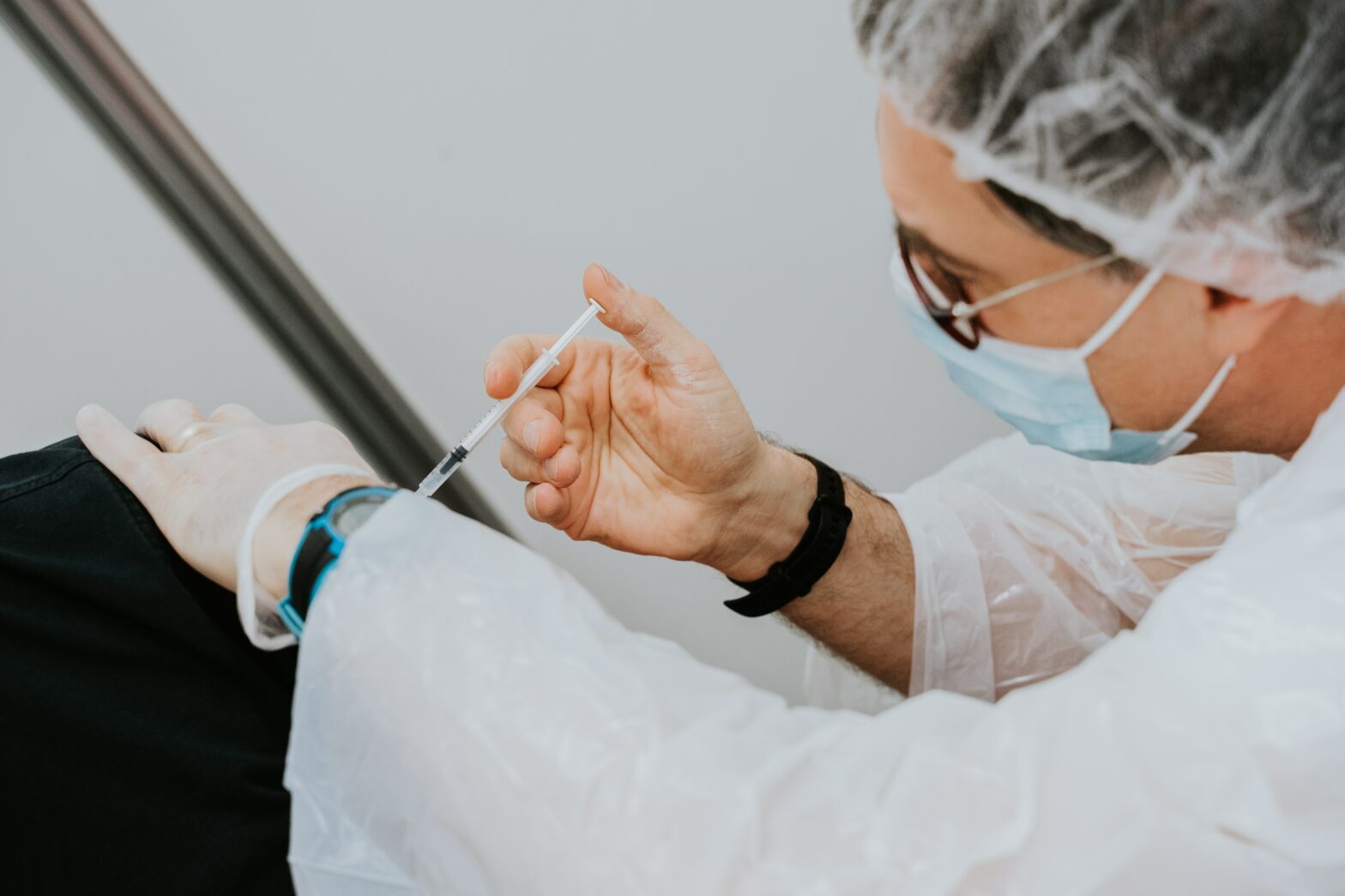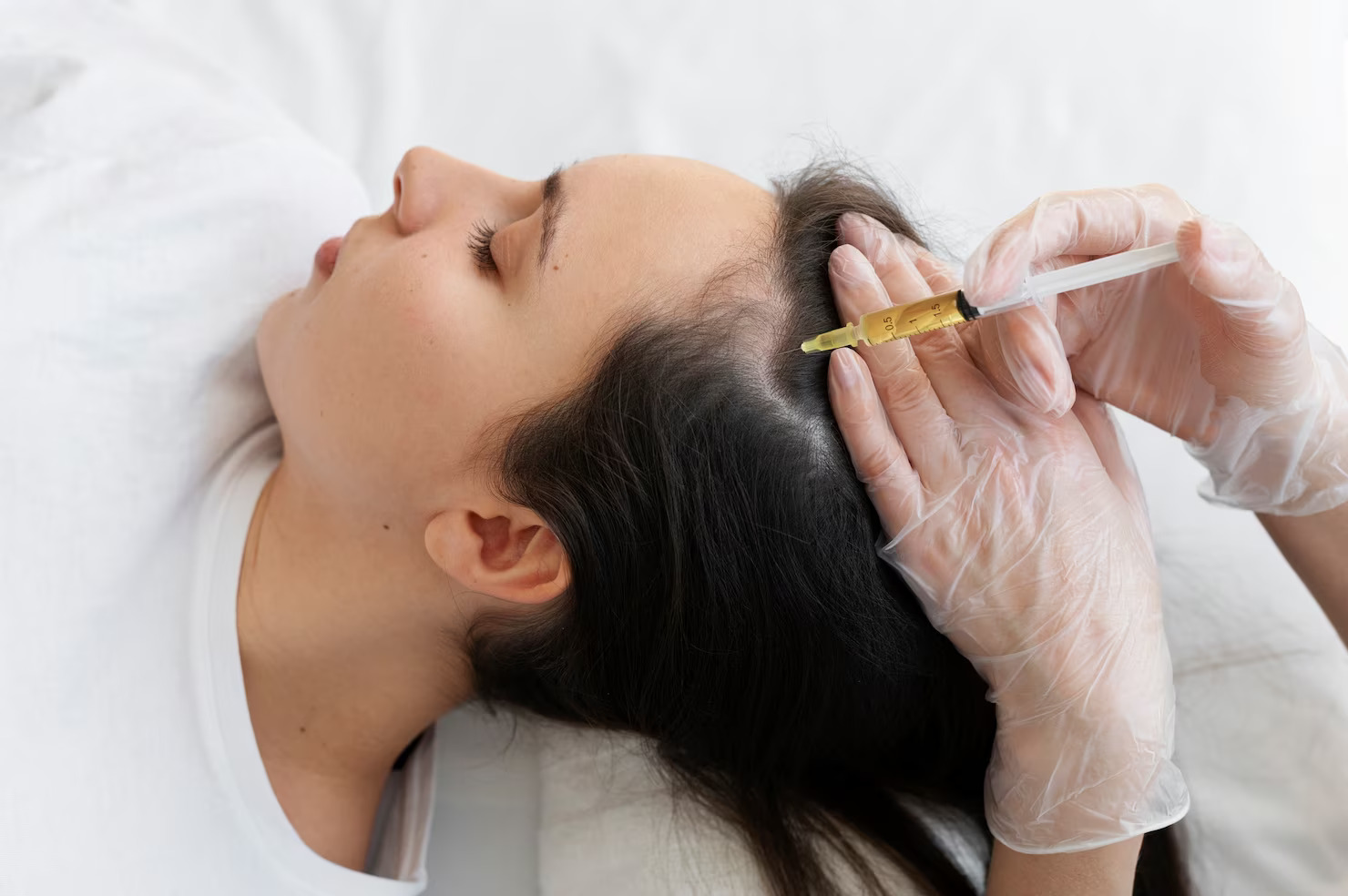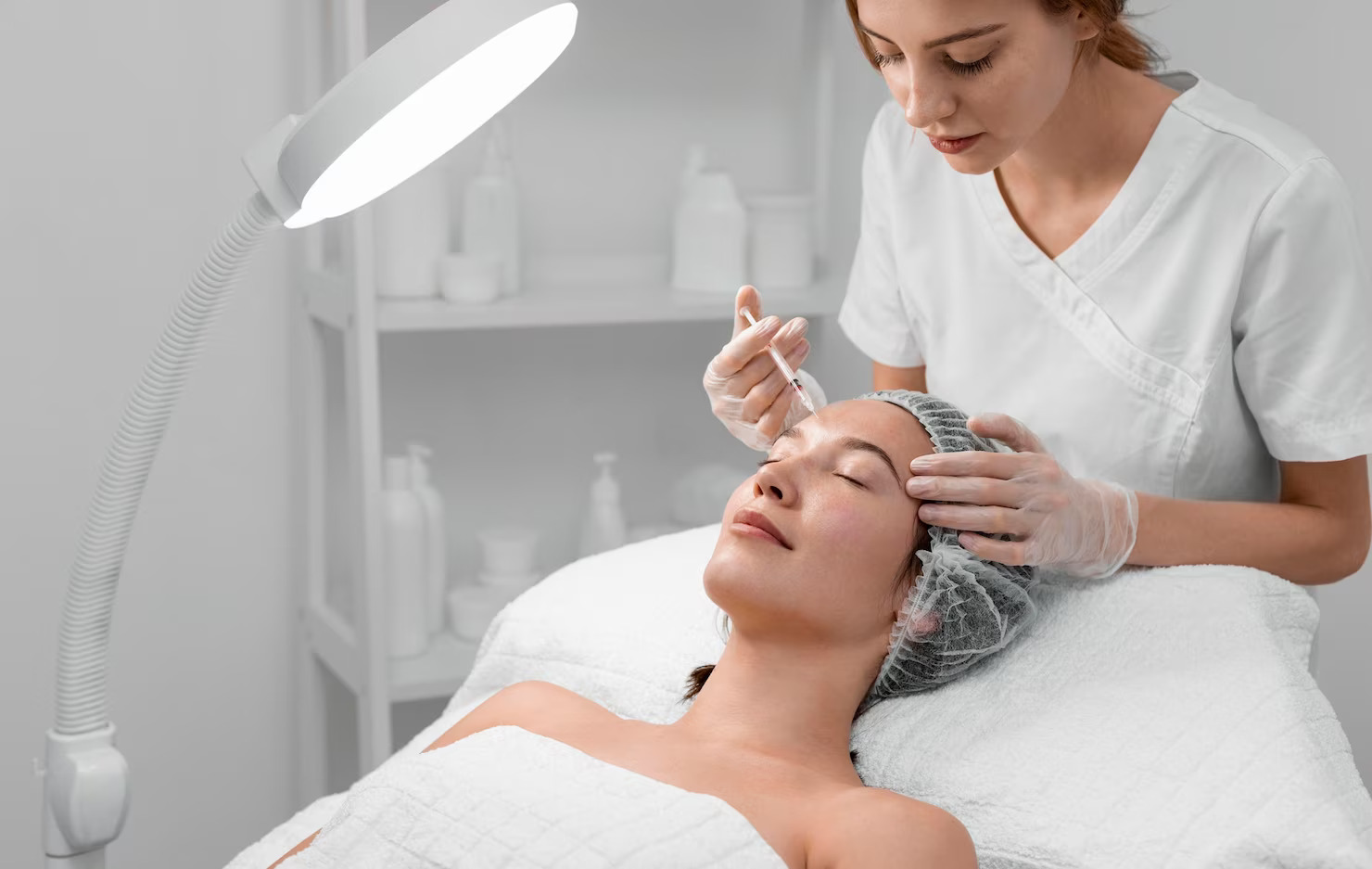TL;DR (Read This First)
- Yes — in most cases, your natural testosterone production will come back after TRT.
- TRT does shut down natural production while you’re on it because of how the brain-hormone feedback loop works.
- Recovery usually takes a few months, but it can take longer depending on age, duration of TRT, and baseline hormone levels.
- You typically return to your original baseline, not necessarily “high-normal” levels.
- Recovery can be improved with hCG, SERMs (like clomiphene or enclomiphene), proper tapering, and smart lifestyle habits.
- It’s possible — though uncommon — for long-term use or prior steroid abuse to make recovery slower or incomplete.
- You can sometimes preserve natural function while on TRT by using hCG or alternative therapies under medical supervision.
If you want the deeper explanation — timelines, recovery strategies, fertility concerns, and worst-case scenarios — keep reading.
Does TRT Shut Down Natural Testosterone Production?
Yes. While you’re on testosterone replacement therapy (TRT), your natural production shuts down.
Here’s why.
Your hormone system works on a feedback loop called the hypothalamic-pituitary-testicular axis (HPTA):
- Your brain (hypothalamus) signals the pituitary.
- The pituitary releases LH and FSH.
- LH tells your testicles to produce testosterone.
When you introduce external testosterone, your brain senses “we have enough.”
So it stops sending LH and FSH.
No LH = no natural testosterone production.
That’s why:
- Testicles may shrink slightly
- Sperm production decreases
- Natural T drops close to zero
This shutdown is expected. It’s not damage — it’s suppression.
The real question is what happens after you stop.
What Happens When You Stop TRT?
When you stop TRT, your body doesn’t instantly “turn back on.”
There’s usually a transition period.
Weeks 1–2: Testosterone Drops Quickly
Injected or topical testosterone clears your system.
Your levels fall fast.
Weeks 3–8: The Low-T Gap
This is the uncomfortable phase.
Your natural production hasn’t restarted fully yet, but the external testosterone is gone.
You may feel:
- Fatigue
- Low libido
- Mood swings
- Brain fog
- Poor workouts
This is temporary for most men.
Months 2–6: Recovery Window
Your brain begins sending LH and FSH again.
Testicular production slowly increases.
This is when lab work becomes important.
How Long Does It Take for Natural Testosterone to Come Back?
It depends.
If You Were on TRT Less Than 1 Year
Recovery is usually quicker.
Often within 2–4 months.
If You Were on TRT 1–5+ Years
Recovery may take:
- 3–6 months
- Occasionally longer
If You Had Low T Before Starting
This is important.
Most men return to their original baseline.
If your natural level was 320 before TRT, you’ll likely return close to that — not 700+.
TRT doesn’t usually “ruin” your baseline.
It just suppresses it while you’re on therapy.
Can TRT Permanently Shut You Down?
It’s possible, but uncommon in medical TRT.
Higher risk factors include:
- Very long-term use (many years)
- High-dose anabolic steroid cycles
- Pre-existing testicular dysfunction
- Older age
There’s a big difference between supervised medical TRT and heavy anabolic steroid abuse.
Most men on legitimate TRT recover production — though it may not be as strong as they hope.
How to Restore Natural Testosterone After TRT
This is the part most people care about.
1. Don’t Panic and Quit Cold Turkey Without a Plan
Some men recover fine stopping abruptly.
Others benefit from structured support.
Work with a provider who understands HPTA recovery.
2. Use hCG to Stimulate the Testicles
hCG mimics LH.
It tells your testicles:
“Start producing testosterone again.”
This can:
- Reduce atrophy
- Improve recovery speed
- Preserve fertility
Sometimes it’s used during TRT. Sometimes after.
3. Consider SERMs (Clomiphene or Enclomiphene)
SERMs work at the brain level.
They trick your brain into thinking estrogen is lower, which increases:
- LH
- FSH
- Natural testosterone production
This can be helpful during recovery — especially if LH remains suppressed.
4. Monitor the Right Labs
You should track:
- Total testosterone
- Free testosterone
- LH
- FSH
- Estradiol
Rising LH and FSH are good signs that recovery is underway.
5. Fix the Lifestyle Variables
Hormones don’t recover well in a broken system.
Support recovery by:
- Sleeping 7–9 hours
- Lifting weights 3–5x per week
- Reducing excess body fat
- Limiting alcohol
- Ensuring adequate zinc and vitamin D
Lifestyle alone won’t override suppression — but it helps optimize recovery.
Is It Possible to Regain Testosterone Naturally?
Yes — in most cases.
But understand what “naturally” means.
You’re not going to naturally push levels far beyond your genetic ceiling.
You’re aiming to:
- Restore baseline production
- Improve metabolic health
- Support optimal endocrine function
If you never had clinically low T before TRT, odds of recovery are strong.
If you had severe hypogonadism before starting, recovery may be limited.
TRT and Fertility: Will Sperm Production Return?
TRT suppresses sperm production because FSH drops.
Most men regain sperm production after stopping, but it can take:
- Several months
- Occasionally up to a year
hCG and SERMs can significantly improve fertility recovery odds.
If fertility is a major goal, this should be managed proactively — not reactively.
How to Keep Natural Testosterone Production While on TRT
This is one of the most overlooked questions.
Options may include:
1. Low-Dose hCG During TRT
Keeps the testicles active.
Helps preserve size and sperm production.
2. Periodic Fertility Protocols
Some men cycle hCG strategically.
3. Considering Alternatives Like SERMs Instead of TRT
In certain cases, medications that stimulate your own production can raise testosterone without full shutdown.
Not every man needs full replacement therapy.
This is highly individual and requires medical supervision.
Signs Your Natural Testosterone Is Recovering
Look for:
- LH and FSH rising on labs
- Gradual improvement in energy
- Stronger morning erections
- Testicular fullness returning
- Steady upward trend in testosterone levels
Recovery is rarely instant. It’s gradual.
What If My Testosterone Doesn’t Come Back?
You have options.
- Restart TRT
- Use long-term SERM therapy
- Optimize lifestyle and accept baseline
- Explore further endocrine testing
Permanent shutdown from medical TRT alone is rare — but low baseline levels can feel like it.
The Bigger Question: Should You Even Stop TRT?
For some men, TRT is long-term therapy — like thyroid medication.
If:
- You had clinically low testosterone
- You feel significantly better on TRT
- Labs and health markers are stable
There may be no reason to stop.
But if fertility, cost, side effects, or preference are driving the decision, a structured recovery plan matters.
The Bottom Line
- Yes, natural testosterone usually comes back after TRT.
- It takes time — often months.
- You typically return to baseline, not peak levels.
- hCG and SERMs can improve recovery odds.
- Lifestyle supports, but does not replace, hormonal signaling.
- Permanent shutdown from legitimate TRT is uncommon.
The key isn’t fear.
It’s planning.
If you start TRT with an exit strategy in mind, recovery becomes far less stressful.
- Yes — in most cases, your natural testosterone production will come back after TRT.
- TRT does shut down natural production while you’re on it because of how the brain-hormone feedback loop works.
- Recovery usually takes a few months, but it can take longer depending on age, duration of TRT, and baseline hormone levels.
- You typically return to your original baseline, not necessarily “high-normal” levels.
- Recovery can be improved with hCG, SERMs (like clomiphene or enclomiphene), proper tapering, and smart lifestyle habits.
- It’s possible — though uncommon — for long-term use or prior steroid abuse to make recovery slower or incomplete.
- You can sometimes preserve natural function while on TRT by using hCG or alternative therapies under medical supervision.
If you want the deeper explanation — timelines, recovery strategies, fertility concerns, and worst-case scenarios — keep reading.
Does TRT Shut Down Natural Testosterone Production?
Yes. While you’re on testosterone replacement therapy (TRT), your natural production shuts down.
Here’s why.
Your hormone system works on a feedback loop called the hypothalamic-pituitary-testicular axis (HPTA):
- Your brain (hypothalamus) signals the pituitary.
- The pituitary releases LH and FSH.
- LH tells your testicles to produce testosterone.
When you introduce external testosterone, your brain senses “we have enough.”
So it stops sending LH and FSH.
No LH = no natural testosterone production.
That’s why:
- Testicles may shrink slightly
- Sperm production decreases
- Natural T drops close to zero
This shutdown is expected. It’s not damage — it’s suppression.
The real question is what happens after you stop.
What Happens When You Stop TRT?
When you stop TRT, your body doesn’t instantly “turn back on.”
There’s usually a transition period.
Weeks 1–2: Testosterone Drops Quickly
Injected or topical testosterone clears your system.
Your levels fall fast.
Weeks 3–8: The Low-T Gap
This is the uncomfortable phase.
Your natural production hasn’t restarted fully yet, but the external testosterone is gone.
You may feel:
- Fatigue
- Low libido
- Mood swings
- Brain fog
- Poor workouts
This is temporary for most men.
Months 2–6: Recovery Window
Your brain begins sending LH and FSH again.
Testicular production slowly increases.
This is when lab work becomes important.
How Long Does It Take for Natural Testosterone to Come Back?
It depends.
If You Were on TRT Less Than 1 Year
Recovery is usually quicker.
Often within 2–4 months.
If You Were on TRT 1–5+ Years
Recovery may take:
- 3–6 months
- Occasionally longer
If You Had Low T Before Starting
This is important.
Most men return to their original baseline.
If your natural level was 320 before TRT, you’ll likely return close to that — not 700+.
TRT doesn’t usually “ruin” your baseline.
It just suppresses it while you’re on therapy.
Can TRT Permanently Shut You Down?
It’s possible, but uncommon in medical TRT.
Higher risk factors include:
- Very long-term use (many years)
- High-dose anabolic steroid cycles
- Pre-existing testicular dysfunction
- Older age
There’s a big difference between supervised medical TRT and heavy anabolic steroid abuse.
Most men on legitimate TRT recover production — though it may not be as strong as they hope.
How to Restore Natural Testosterone After TRT
This is the part most people care about.
1. Don’t Panic and Quit Cold Turkey Without a Plan
Some men recover fine stopping abruptly.
Others benefit from structured support.
Work with a provider who understands HPTA recovery.
2. Use hCG to Stimulate the Testicles
hCG mimics LH.
It tells your testicles:
“Start producing testosterone again.”
This can:
- Reduce atrophy
- Improve recovery speed
- Preserve fertility
Sometimes it’s used during TRT. Sometimes after.
3. Consider SERMs (Clomiphene or Enclomiphene)
SERMs work at the brain level.
They trick your brain into thinking estrogen is lower, which increases:
- LH
- FSH
- Natural testosterone production
This can be helpful during recovery — especially if LH remains suppressed.
4. Monitor the Right Labs
You should track:
- Total testosterone
- Free testosterone
- LH
- FSH
- Estradiol
Rising LH and FSH are good signs that recovery is underway.
5. Fix the Lifestyle Variables
Hormones don’t recover well in a broken system.
Support recovery by:
- Sleeping 7–9 hours
- Lifting weights 3–5x per week
- Reducing excess body fat
- Limiting alcohol
- Ensuring adequate zinc and vitamin D
Lifestyle alone won’t override suppression — but it helps optimize recovery.
Is It Possible to Regain Testosterone Naturally?
Yes — in most cases.
But understand what “naturally” means.
You’re not going to naturally push levels far beyond your genetic ceiling.
You’re aiming to:
- Restore baseline production
- Improve metabolic health
- Support optimal endocrine function
If you never had clinically low T before TRT, odds of recovery are strong.
If you had severe hypogonadism before starting, recovery may be limited.
TRT and Fertility: Will Sperm Production Return?
TRT suppresses sperm production because FSH drops.
Most men regain sperm production after stopping, but it can take:
- Several months
- Occasionally up to a year
hCG and SERMs can significantly improve fertility recovery odds.
If fertility is a major goal, this should be managed proactively — not reactively.
How to Keep Natural Testosterone Production While on TRT
This is one of the most overlooked questions.
Options may include:
1. Low-Dose hCG During TRT
Keeps the testicles active.
Helps preserve size and sperm production.
2. Periodic Fertility Protocols
Some men cycle hCG strategically.
3. Considering Alternatives Like SERMs Instead of TRT
In certain cases, medications that stimulate your own production can raise testosterone without full shutdown.
Not every man needs full replacement therapy.
This is highly individual and requires medical supervision.
Signs Your Natural Testosterone Is Recovering
Look for:
- LH and FSH rising on labs
- Gradual improvement in energy
- Stronger morning erections
- Testicular fullness returning
- Steady upward trend in testosterone levels
Recovery is rarely instant. It’s gradual.
What If My Testosterone Doesn’t Come Back?
You have options.
- Restart TRT
- Use long-term SERM therapy
- Optimize lifestyle and accept baseline
- Explore further endocrine testing
Permanent shutdown from medical TRT alone is rare — but low baseline levels can feel like it.
The Bigger Question: Should You Even Stop TRT?
For some men, TRT is long-term therapy — like thyroid medication.
If:
- You had clinically low testosterone
- You feel significantly better on TRT
- Labs and health markers are stable
There may be no reason to stop.
But if fertility, cost, side effects, or preference are driving the decision, a structured recovery plan matters.
The Bottom Line
- Yes, natural testosterone usually comes back after TRT.
- It takes time — often months.
- You typically return to baseline, not peak levels.
- hCG and SERMs can improve recovery odds.
- Lifestyle supports, but does not replace, hormonal signaling.
- Permanent shutdown from legitimate TRT is uncommon.
The key isn’t fear.
It’s planning.
If you start TRT with an exit strategy in mind, recovery becomes far less stressful.













